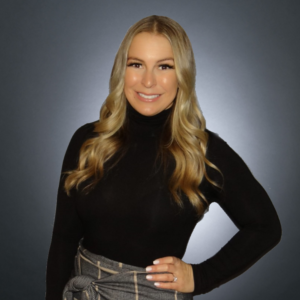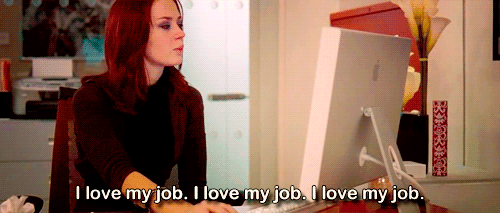During any job interview, there are certain questions you can expect to be asked—questions about your skills, experience, and fit for the job. But interviewers know you’ve practiced answers to these common questions. Often you offer responses that simply reiterate what is on your resume and cover letter. This is why you can also expect some of the trickiest interview questions to follow.
So, you should also expect some more probing and difficult questions. These trickiest interview questions will be challenging to answer. On the surface, some of the questions may seem to be created to trick you. And they are!
Experienced hiring managers know that you can learn a lot about a candidate when you ask the right questions. These questions are meant to bring to light information you may not want to communicate to the interviewer.
Why Do Interviewers Ask Tricky Questions?
Employers will use tricky questions to test you and see how you’ll react. They are trying to get a sense for your fit for the job and whether or not you’ve been honest on your resume. It’s a well-known fact that most people lie on their resume.
These tricky questions are focused on finding gaps, understanding your shortcomings and digging deeper to learn more about the real you, not the well-rehearsed job interview presentation of yourself.
As much as you want to know what it’s really like to work for an employer, they want to know what they can actually expect from you if hired.
The 6 Trickiest Interview Questions and Tips to Ace Them
Whether you are interviewing for a junior, intermediate, or senior role in sales, expect a few challenging questions during the interview process.
Here we outline some of the trickiest interview questions and effective tips to ace them:
1. Is This Job Similar to Others You Are Applying For?
Interviewers know if you’re applying for this job, you’re likely applying for others. This question is typically asked to learn more about your career ambitions. They want to know where else you’re applying, the types of roles you’re applying for and get an overall understanding of your career focus.
The tricky part about answering this question is knowing how much information to provide. Avoid naming all the positions you are applying for and avoid mentioning the different companies. You want the hiring manager to see you are focused, so if you are applying for a number of different types of jobs, only mention the roles related to this job. Keep the answer general and tie it into your career focus and main objectives.
2. Why Do You Want to Work at This Company?
Doing your homework about a company is a vital part of the job interview preparation process. Interviewers ask this question to find out how much you know about the company. A sure fire sign you are interested in working for a company is knowing as much as possible about the company and the particular job you’re applying for.
Be as specific as possible regarding why you want to work for the company. A generalized answer just won’t cut it here. Hiring managers want to know in detail why you chose to apply. Tie in company values, growth possibilities the company offers, company culture and how the job is an opportunity for you. Show some excitement and get as detailed as possible to show that you really want the job.
3. Why Do You Want to Exit Your Current Role?
This question is difficult to answer for a number of reasons. Perhaps you have issues with your boss, the job isn’t what you thought it would be or you don’t fit the company culture – all valid reasons. Hiring managers ask this question to look for potential issues. This is particularly the case if you’ve only been in your current job for a short period of time. They are looking for red flags.
Avoid focusing on the negatives of your current job when answering the question. If you do, you could appear like a negative person and a disgruntled employee. The best way to answer this question is to communicate your need for a challenge that better meets your skills and experience. Communicate your desire for growth opportunities and desire to take the next step in your career.
4. What Do You Think Your References Will Say About You?
Interviewers tend to ask this question if they suspect something questionable about your references. They want to see how you will react to the question. They also want to see if you will give up any negative information about yourself you may be worried your references may speak about.
If you are confident about your references, you have nothing to worry about here. But it’s important you answer the question in the right way. Avoid saying anything negative about a previous role. Rarely do people agree to become a reference if they don’t want to give you a positive reference. Also, don’t use this as your opportunity to say how great you are. Simply communicate that your references will provide more context for the positive impact you had with previous organizations.
5. What Is Your Biggest Career Failure to This Point?
We all make mistakes and your interviewer will expect that. But what the hiring manager wants to understand is how you deal with failure when it happens. It’s okay to mention a time where you fell short. The key to answering the question is also to explain what you did to make things right. Explain how you overcame the situation. Use this question to communicate how you are resilient and willing to dig in when times get tough.
6. Do You Have the Entrepreneurial Spirit?
Having an employee leave to start a competing business is a real threat to organizations today, even in sales. Companies don’t want to invest significant time, training, coaching and other resources into an employee if they are going to exit the organization and become a competitor.
The tricky part about answering this question is finding the right balance. Most people have thought about starting a business at one time or another, and it’s okay to admit this. But the key is to make it clear that you are focused on working in a corporate environment now. Give a reason or two why this is the case.
Get More Sales Job Interview Preparation Tips
6 Genius Ways to End Your Sales Interview and Leave a Lasting Impression
Get Stumped During Sales Interviews? Clever Ways to Answer “Teach Me Something.”
Clever Ways to Answer “Give Me an Example of When You Thought Outside the Box to Solve a Problem”
3 Creative Ways to Prep for a Mock Sales Presentation in a Job Interview
Strong Ways to Answer “What Is Your Biggest Weakness” in a Sales Interview
The Best Answer for “How Would Your Colleagues Describe You?”

Claire McConnachie
Claire has 4+ years of experience in sales and recruitment. As a Director of Client Services, her main objective is to connect great people to great companies by building strong relationships with both top clients and candidates in the sales industry. She specializes in sales roles of all seniority levels for both enterprise and start-up clients North American wide. When Claire isn't networking with top talent, she enjoys being outdoors, traveling and spending time with friends & family.


